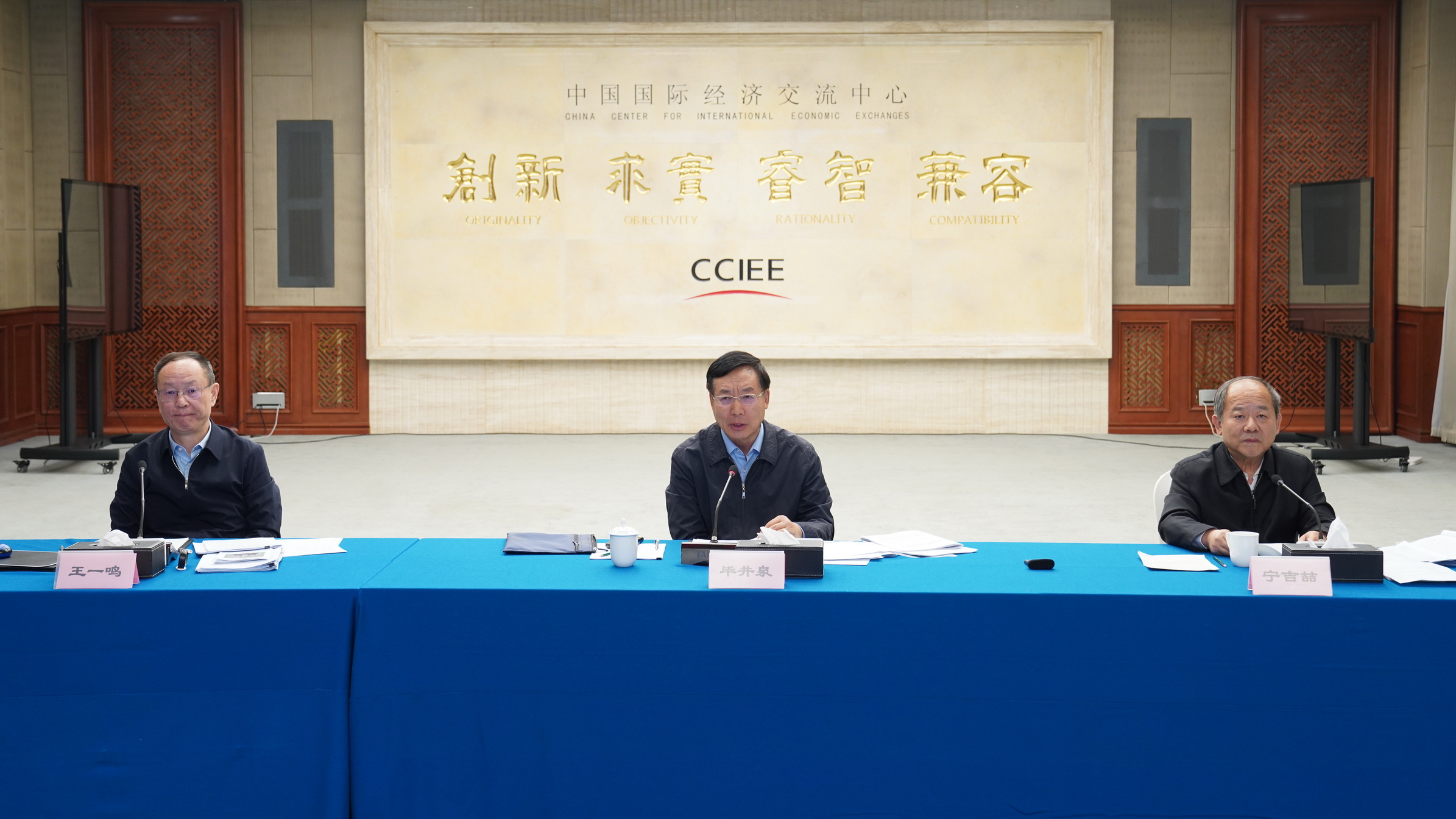CCIEE Held 157th Monthly Economic Talk Themed of Learning and Implementing the Spirit of the 20th National Congress of the CPC
- Time:2022-11-07
- source:CCIEE
On October 26th, 2022, the China Center for International Economic Exchanges (CCIEE) held the 157th "Economic Monthly Talk" via video conference with the theme of "Learning and Implementing the Spirit of the 20th National CPC." The meeting was chaired by Bi Jingquan, Executive Vice Chairman of CCIEE. Ning Jizhe, Vice Chairman of Economic Committee of CPPCC and Vice Chairman of CCIEE, Wang Yiming, Vice Chairman of CCIEE and Chairman of the Academic Committee at CCIEE, delivered speeches respectively.

Ning Jizhe pointed out that high-quality development is the primary task in comprehensively building a modern socialist country. The report has outlined five major tasks for accelerating the construction of a new development pattern and promoting high-quality development. To implement these tasks, six "combinations" need to be achieved. Firstly, combining domestic circulation with international circulation, the key is to remove barriers and obstacles that hinder the dual circulation, enhance the endogenous power and reliability of domestic circulation, and improve the quality and level of international circulation. Secondly, combining expanding domestic demand with optimizing the structure, based on the supply-side structural reform, better integrating structural adjustment with expanding domestic demand. Thirdly, combining quality improvement with quantity growth, giving importance to maintaining the economy within a reasonable range and ensuring reasonable growth in quantity, which lays a solid material foundation for achieving substantial and effective economic improvement. Fourthly, combining rural revitalization, urban construction, and regional development, constructing a regional economic layout and territorial spatial system with complementary advantages and high-quality development. Fifthly, combining the real economy, technological innovation, modern finance, and human resources, guiding economic transformation and further harnessing the role of technological transformation in productivity. Lastly, combining high-level reform with high-level opening up, establishing a high-level socialist market economic system, deeply participating in global industrial division and cooperation, and maintaining a diverse and stable international economic pattern and trade relations.
Wang Yiming stated that China's modernization is the result of long-term exploration, practice, and innovative breakthroughs, which shares common characteristics with the modernization of other countries but also possesses its own Chinese characteristics based on the national conditions. He believes that the massive scale of population in China's modernization reflects its unique national conditions. The modernization emphasizing common prosperity for all people highlights the essential requirements of Chinese socialism with distinctive characteristics. The coordination of material civilization and spiritual civilization is a distinct feature of China's modernization. The harmonious coexistence of humans and nature is a characteristic of China's modernization in this era. China's commitment to a path of peaceful development is a solemn declaration to the world. High-quality development is the primary task in the overall agenda of modernization construction. In the future, it is necessary to actively implement the innovation-driven development strategy, establish an integrated system for science, technology, education, and talent, and address the bottleneck of core technology.. We should adhere to the direction of socialist market economy reform, build a high-level socialist market economic system, create new institutional dividends, and leverage the decisive role of the market in resource allocation while better utilizing the role of the government. Furthermore we should also advance high-level opening-up, persist in the dual circulation of domestic and international markets, and establish closer connections and interactions with the world economy.
After the speeches, the participating experts engaged in interactive exchanges with the media. Some researchers and member units of CCIEE, research institutions, enterprises, and news media participated in the conference through online channels.
